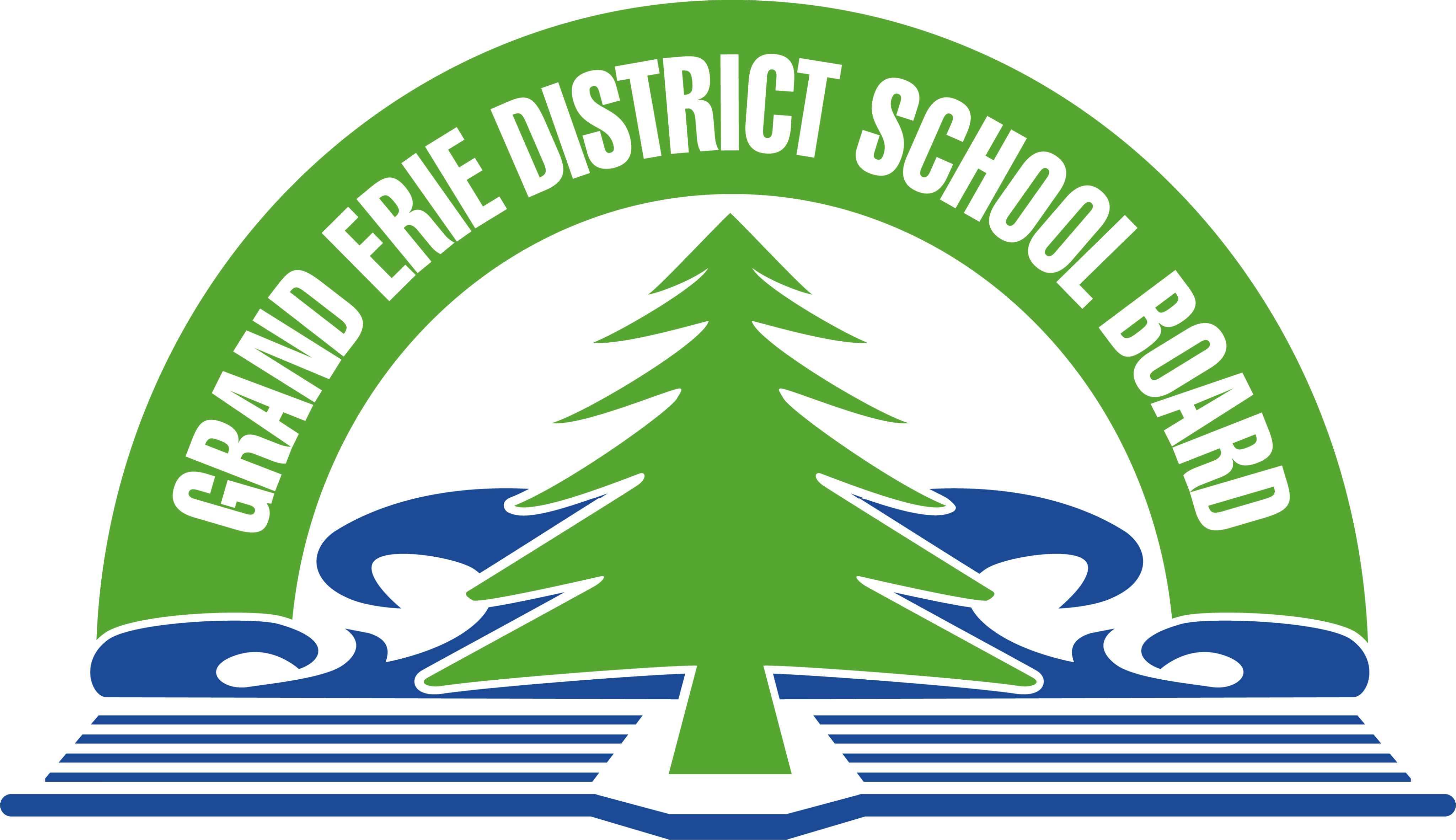Bullying
Grand Erie is committed to providing a safe, inclusive and positive space for all students and staff.
Our school communities are places where all students and staff need to be respected, welcomed, nurtured, engaged and encouraged.
We do not condone bullying, and it will not be accepted on school property, on school buses, or in any other circumstances (e.g. online). Engaging in bullying has a negative impact on the school climate.
In Grand Erie we see bullying as a dynamic of unhealthy interactions and recognize that can take many forms. It can be: physical (e.g. hitting, pushing, tripping, etc.), verbal (e.g. name calling, mocking or making sexist, racist or homophobic comments), social (e.g. excluding others from a group, spreading gossip or rumours), and/or through the use of technology (e.g. cyberbullying or spreading rumours, images or hurtful comments through the use of email, cell phones, text messaging, internet web sites, or other technology).
Our Board policy promotes students adhering to codes of conduct both in person and online. We promote personal and family responsibility for student behaviour and involve supports for students where intervention beyond the level of the classroom is required.
Serious consequences for in-person or online bullying can range from short term suspensions to expulsion or exclusion from school. Approaches to student misbehaviour uses the progressive discipline model, which emphasizes education and support in correcting student misbehaviour. Community partners work collaboratively with us toward creating safe and inclusive school environments where students feel they belong.
We strive to create open school environments where there is open communication, where students report concerns to teachers, and parents/caregivers bring their concerns to staff. Open information sharing encourages opportunities to intervene early and solve problems together. In Grand Erie we work collaboratively with our community partners toward student safety and well-being, which are foundations to student success.
Work to support students engaging in healthy relationships and personal responsibility happens each day, all year long. In addition to relationships with teachers, Educational Assistants, Principals, and other school staff, our Child and Youth Workers and Social Workers are in every school in Grand Erie and provide individual and classroom-based support regarding healthy relationships, personal responsibility and self-regulation, to name a few. Safe and Inclusive Schools provides education about internet and social media safety, as well as power and personal responsibility.
We also provide parent/caregiver education to support parent/caregiver awareness about the impact of social media on our students and how they can educate themselves and their children to safeguard against the constant dangers of online communities and the impact of the information that is shared in those spaces.
In November every year Grand Erie recognizes Bullying Awareness and Prevention Week. Highlighting the importance of the impact of unhealthy relationships and power imbalance promotes our school’s awareness of the potential harm that is caused. During this week we also focus on skill building and problem solving to equip students with tools.

What Can Schools Do?
- Provide ongoing education for staff, children and parents/caregivers about bullying prevention.
- Provide a safe environment through open communication; good supervision; clear rules and consequences for bullying behaviour; and problem solving with students, staff and parents/caregivers.
- Provide a positive and inclusive school climate.
- Work collaboratively with community agencies to promote bullying awareness and intervention.
- Hold Restorative meetings, to repair the harm caused by bullying incidents.
- Provide short-term counselling through Student Support Services (e.g. Social Worker, Child and Youth Worker).
What Can Parents/Caregivers Do?
- Communicate with your child about the problem - find out if they are experiencing or witnessing bullying at school and in the community.
- Communicate with your child’s school. Keep in regular contact with the school and work on solutions together, involving your child as appropriate. Be sure to mention any changes in behaviour and/or emotion you see in your child.
- Help your child with strategies. Teach your child assertiveness skills and problem-solving skills. Encourage your child to be a good bystander.
- Help your child with the skills to distinguish Conflict vs. Bullying. Watch the following videos:
- Encourage your child to seek support from trusted friends and adults, and report incidents that happen at school.
- Build your child’s self-esteem and self-confidence. Provide opportunities for positive socializing and encourage participation in activities your child enjoys. Help your child to see his/her own strengths.
What Can Students Do?
- Make friends who will stand up for you and stand by you.
- Talk to a friend or adult for support.
- Practice responses to bullying at home. Make role play a positive experience.
- Practice showing confidence, firm voice, eye contact, stand up tall.
- Stay in the sight of an adult.
- Have a plan for dealing with bullying (e.g. walk away, report, stand up for yourself)
- Be a good bystander-stick up for others who are being bullied.
- Remember that reporting is not tattling. It is the right thing to do to help someone who may be hurt.
- Offer support to students who are targets of bullying. Let them know that you think it is wrong and you do not agree with it.
- Use power in numbers. Sticking with a group provides safety and support. Standing up against bullying together is easier than standing alone.
How to be an Active Bystander
Watch Video: Bullying Awareness: Active Bystanders
Click here
- Call attention to a situation – "Hey! What’s going on?"
- Offer help – "Is there something I/we can do?"
- Express disapproval – "Stop that!"
- Recruit allies; make suggestions for what other bystanders might do – "You go get help and I will stay here."
- Stop negative bystanders – "When you laugh you encourage them."
- Support the target – "Do you want them to stop that?"
- Raise the target’s spirits – "I am sorry this happened or, that they did that."
- Support individuals in non-harmful action – "Could I help you figure this out?"
System and Provincial Support
Most of the work to address unhealthy relationships happens at the school level. Here are links to the policies and procedures for Grand Erie and the Province of Ontario that guide this work.
Grand Erie’s Safe and Inclusive Schools policies and procedures:
- Student Suspensions SO6
- Student Expulsions SO7
- Cyberbullying SO9
- Bullying Prevention and Intervention SO10
- Progressive Discipline and Promoting Positive Student Behaviour SO11
- Code of Conduct SO12
- Equity and Inclusivity in Education SO14
- Violence Threat Risk Assessment and Intervention SO29
- Exclusion of Students SO32
Safe and Accepting Schools provincial policies:
Safe and Accepting Schools provincial policies:
- Policy/Program Memorandum 9: Duty to Report Children in Need of Protection
- Policy/Program Memorandum 120: Reporting Violent Incidents to the Ministry of Education
- Policy/Program Memorandum 123: Safe Arrivals
- Policy/Program Memorandum 128: The Provincial Code of Conduct and the School Board Codes of Conduct
- Policy/Program Memorandum 141: School Board Programs for Students on Long-Term Suspensions
- Policy/Program Memorandum 142: School Board Programs for Expelled Students
- Policy/Program Memorandum 144: Bullying Prevention and Intervention
- Policy/Program Memorandum 145: Progressive Discipline and Promoting Positive Student Behavior
Reference Material
- Safe@School https://www.safeatschool.ca/
- PREVNet https://www.prevnet.ca/bullying
- The Canadian Safe School Network https://cssn.me/resources-for-parents

